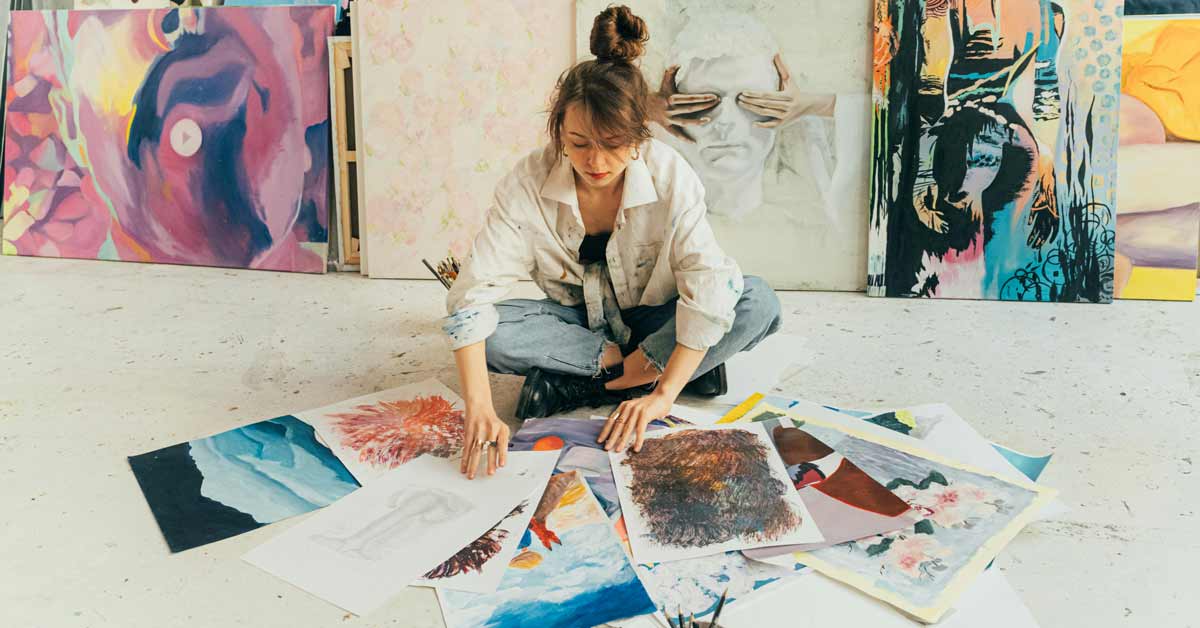Imagine growing up in a world where everybody functions using a Windows operating system.
The world is designed with Windows in mind, all of the programs that you need to use to live and work are created for Windows, and all of the operating guides for life are written for use with Windows, too.
When you look at the people (or the computers, if we’re really going for the analogy) around you, everything seems to be running perfectly smoothly for them. They’ve got all the correct software downloaded, they’re whizzing their way through everything they need to achieve, and everything seems to be going to plan.
For you, though, this doesn’t seem to be the case. You keep trying to download programs, but they crash out at the last moment. When you search for something, all you get is Error 404, and when you try to read up in the operating manuals, it feels as though everybody else must be reading some invisible ink that you’re not able to see.
You’ve never been given any plausible explanation as to why Windows doesn’t work for you, though — as far as you’re aware, you’re just the same as everybody else.
"deep down, you know that You're ... not the same."
But in reality, deep down, you know that you’re not. You’re not the same.
You can’t do things in the same way as everybody else around you can, you can’t achieve things in the same way that everybody else does, and you just don’t seem to be able to exist quite as easily as they can, either.
Then one day, after 20+ years of these struggles, and after 20+ years of truly believing that you were broken, that you were damaged, and that you were a bad person, somebody comes along and says, “Hey, have you ever considered that you might just be a Mac?”.
And suddenly, it all makes sense.

There was nothing wrong with you as a Mac — you were, in fact, a perfectly good Mac. You’d just spent your whole life trying to live the way that all the Windows PCs were living, and that, obviously, hadn’t suited you.
But now, with that new insight, you could go off, meet other Macs, and run Mac programs — and realize that you were never broken, you were just trying to run programs that physically weren’t designed for your operating system.
You were never damaged — you just weren’t able to process the coding that you were expected to.
You were never a bad person — you just didn’t have the right information to build up an accurate picture of yourself.
This is the story of my life — but instead of spending a lifetime thinking that I was a shitty Windows PC and then finding out that I was, in fact, a Mac, I spent 24 years thinking that I was a shitty neurotypical person, to then discover that I was an autistic ADHDer.
I’d spent years desperately trying, and miserably failing, to be something that I wasn’t — and then the second that I found out who I really was, and started trying to authentically live my life that way, I could actually achieve things, and I could finally feel good.
"Getting my autism & ADHD diagnoses at the age of 24 was the beginning of unlearning all of the negative things that I'd been repeatedly told about myself, both by the people around me and by the voice inside of my head. "
Getting my autism & ADHD diagnoses at the age of 24 was the beginning of unlearning all of the negative things that I’d been repeatedly told about myself, both by the people around me and by the voice inside of my head.

I had spent my whole life being told over and over again that I was selfish, self-absorbed, dramatic, too much, annoying, bitchy, and a whole host of almost every possible insult you could come up with — and not only did I hear these insults from other people, but I genuinely believed them myself.
I’d never been given any reason or explanation that could justify or make sense of people feeling this way about me, so the only plausible explanation in my mind was that they must have been right.
I must have been the horrible person that they painted me out to be; what else could possibly have been so wrong with me or so bad about me in order to make every single person that I ever became friends with want to leave?
"But on discovering that I was an autistic ADHDer — a Mac trying to function in a Windows world — I could begin to learn to forgive myself for being different."
But on discovering that I was an autistic ADHDer — a Mac trying to function in a Windows world — I could begin to learn to forgive myself for being different.
I could see that I was never a bitch; I just naturally communicate in a more concise and monotonous way.
I could see that I was never selfish; I just operate in a different way from the people around me, so it can be hard for me to see things from their point of view.
I could see that I was never dramatic; I just have a brain that is physically able to see, hear and sense things in a much more intense way than other people’s brains can.
And most importantly, I could see that I was never “too much”; I was just an honest, upfront, excitable human being who experienced life at 100%.
I learned that I was never damaged; I am disabled. I was never broken; I am different. I was never a bad person; I am just hugely misunderstood.
And that is why getting my diagnosis was the best thing to ever happen to me, and why we must ensure that others who have slipped under the radar are able to find their own answers, too.
Ellie Middleton is an autistic and ADHD creator, speaker, writer, and consultant. She was diagnosed with both Autism Spectrum Condition and ADHD at the age of 24.
Since then, she’s gone on to build an audience of over 300,000 people online, create the (un)masked community for neurodivergents, and work with global brands like The Independent, Google, and LinkedIn to change the narrative on neurodiversity.





